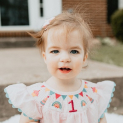A Role for Non-canonical Wnt/PCP Signaling in Growth and Self-Renewal of Embryonal Rhabdomyosarcoma

Background
Relapse is the major clinical problem facing patients with embryonal rhabdomyosarcoma (ERMS), a pediatric malignancy of the muscle. In ERMS, a small population of cells is responsible for relapse and if these cells could be eliminated, tumors would regress and patients could remain relapse free. In the Langenau lab, we use zebrafish as a tool to uncover novel biology underlying ERMS and to help understand tumor propagation in humans. Wnt signaling is an important regulator of muscle development, and in the stem cell compartment a form of non-canonical Wnt signaling called Planar Cell Polarity signaling (Wnt/PCP) is required for stem cell maintenance and self-renewal. In humans, ERMS factors known to regulate Wnt/PCP are expressed and my data suggests that Wnt/PCP signaling plays a role in growth, self-renewal and specification of specific tumor cell types in our zebrafish ERMS model and in human cells. The relationship between Wnt/PCP signaling, ERMS and cancer progression in general remains poorly understood, therefore this project aims to further understand Wnt/PCP signaling during ERMS growth and self-renewal.
Project Goal
Aim 1 will define the role for factors involved in Wnt/PCP signaling as modifiers of tumor propagating cells in zebrafish ERMS. Aim 2 will characterize the therapeutically targetable genetic pathway as a mediator of ERMS biology in vivo using our zebrafish kRASG12D ERMS model and in human ERMS cell lines. Finally, Aim 3 will extend my findings to a pre-clinical mouse xenograft model and define Wnt/PCP signaling as a potential target for patient therapy.
"The Alex's Lemonade Stand Young Investigator Award will help me pursue my laboratory research and the steps I've made to identify novel therapeutic targets to help children suffering from cancer. I am excited to be a part of the ALSF community and meet new people. This experience will truly be invaluable for my career as a pediatric cancer researcher." - Madeline Hayes, PhD

